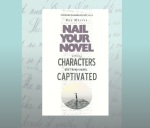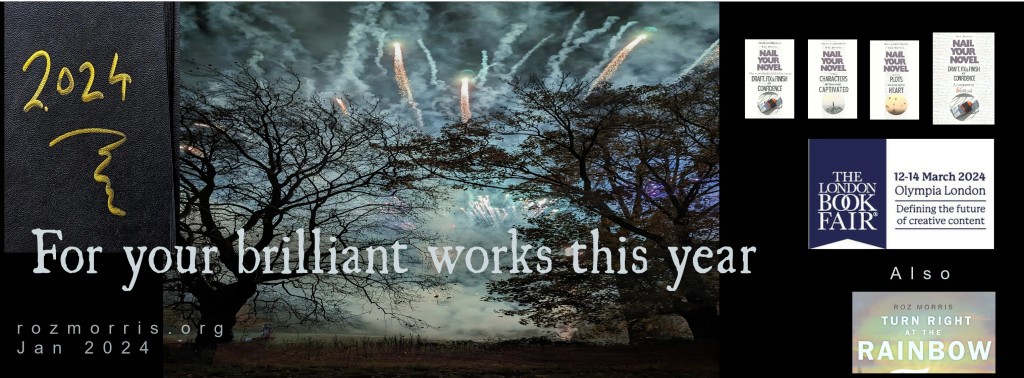
You might remember the terrific question Adam Nicholls asked me about daily wordcounts and now he’s sent me this: May I pick your brain about fleshing out a character? I’m struggling with someone who’s addicted to heroin.
What a challenging subject. It’s daunting to portray a character whose experience is well beyond your own, especially to such an extreme. Here’s where one of my day jobs comes in handy. My freelance gig on a doctors’ magazine means I’ve edited a lot of pieces by people who help addicts. So this is my checklist for creating a plausible, three-dimensional character in the grip of a demonic addiction, whether illegal drugs, alcohol or a habit such as gambling.
Choose your poison
The addictive drugs have different effects. Adam has already decided his character uses heroin but you might want your character speeded up, slowed down, made more confident or just mickey finned. For one of my ghosted novels I needed a drug that would produce ghastly, debilitating hallucinations with possible flashbacks and could be easily obtained by ravers. With that wish list I decided on ketamine. (A horse anaesthetic, since you ask. Horrible if taken by humans. And make sure your internet firewall is working. You’ll find some seriously shaky stuff.)
Decide how the drug or habit alters their personality
The drug will probably amplify or change certain parts of your character’s personality. So you need to know what they were like without the drug. And remember personality is not the same as back story. Although you might use back story to demonstrate a traumatic event that led them to addiction, their reaction is individual. That same event may have had a completely different effect on another person.
Consider what the drug does for them
What do they get out of it? Why did they like it at first? Why did they try it? Have they used other drugs and what did those do for them? Are they calmer, more intensely concentrated, does it take the edge off, make them more confident, ease awkwardness with other people, numb a sense of not belonging, being fundamentally wrong or dull some other pain?
Decide how addiction controls them
You’ll undoubtedly be reading first-hand accounts of addicts and those who have been close to addicts. But you can also do a little role-play yourself to understand a person in the grip of a fierce dependence. You may not have dabbled with drugs, but I’ll bet there’s something in your life that is so important you arrange everything around it. Your children, partner, job may all govern your day-to-day decisions and choices. So you know what it’s like to place something at the centre of your life and defend it when necessary. This is like your addict’s need.
Money
What does your addict do to fund the habit and how does that impact their life? Do they steal? If so, do they commit crimes or do they steal from the people close to them? Or are they independently wealthy? Is their supply guaranteed or do they struggle to find the drugs? What dangerous people might their habit bring them into contact with?
Significant others who aren’t addicted
How does the addiction affect the lives of those around them? What story conflicts might that create? Does your character have family and friends who aren’t addicted? How do they react? How are relationships changed by it? Who might be driven away? Who might grow closer in an attempt to help? Who knew the character before they were like this? Who has only known them since it started?
Changing
Does your addict have the capacity to stop? What might help them? What might throw them back down?
Introduce the reader to the behaviour that will be abnormal
Your addict character won’t behave like the others. If they develop the addiction through the story, you can introduce their bizarre actions gradually. But if they’re already addicted at the start, you need to handle the character-establishing scenes carefully in case the reader mistakes them for clumsy writing or refuses to believe them. This may be tricky for you to judge by yourself, so when you give the book to beta readers, ask for feedback about it.
 Ultimately, when writing an addicted character, it’s not about the substance/habit or the extreme physical experiences. Concentrate on their personality, priorities, conflicts and other people. Thanks for a terrific question, Adam – I’ve enjoyed tackling this.
Ultimately, when writing an addicted character, it’s not about the substance/habit or the extreme physical experiences. Concentrate on their personality, priorities, conflicts and other people. Thanks for a terrific question, Adam – I’ve enjoyed tackling this.
There are a lot more tips about writing a character who’s not like you in Writing Characters Who’ll Keep Readers Captivated
Thanks for the pic of Janis Joplin Wikipedia
There’s a lot more about writing in my Nail Your Novel books – find them here. If you’re curious about my own work, find novels here and my travel memoir here. And if you’re curious about what’s going on at my own writing desk, here’s my latest newsletter. You can subscribe to future updates here.


If I am not mistaken, didn’t Sherlock Holmes have a drug habit?
A 7% solution of cocaine it was. And catgut strings pulled tight over a curly wooden box, scraped with horsehair. Poor Watson.
Roz, I had a heroin addiction for 17 years, now in recovery. I’ve now returned to my first love (books!) and recently decided to start a crime fiction blog (I need to learn a lot about WordPress, so another thing to keep me busy!) I thought your list of things to consider was excellent! Couldn’t put it better myself, but mine is only one story – there are a million addiction stories, all unique. But it really had it all! Come visit me anytime at crimeworm.WordPress.com – any and all advice gratefully received!
Hi Linda – honoured to have you here. And relieved that my list looked authentic. Best of luck rocking WordPress and the rabbit-hole of bookwriting. I’m hopping over to see you.
You’re more than welcome anytime!
This was great, sometimes characters have traits which make them tricky to characterise.
Do you have any advice on how to make a sarcastic character come across as more genuine? When I’m writing from her viewpoint she’s fine, but from her brother’s, she seems to become a quip machine with no personality.
Thanks, Technophile!
With your sarcastic character, you could give a hint of vulnerability. Sarcasm and other aggressive traits are often a defence mechanism, which arises because there is something to defend. If you could find a way to show that, it would humanise your character more. Of course, from her brother’s point of view she might be a royal pain, and he may never give her enough understanding or slack to let himself see that, so his harsh viewpoint may be true to life. Does that help?
There’s more on this in my characters book. It’s a common problem!
Thank you, Roz!! I had your post bookmarked months ago, but only NOW, actually read it. Shame on me!! In my “Edie’s Story”, I’ve got an alcoholic along with a cocaine addict–2 different characters. I have yet to immerse myself (in a healthy manner) in the addictions, just yet. My long synopsis is on my WordPress blog; you are welcome to come back, comment. Again, thanks!!
Well, you got here eventually – and thanks for leaving a comment! Have fun with your characters.
Reblogged this on Erika for President and commented:
Writing characters with addictions.
Reblogged this on Notes from An Alien and commented:
Roz Morris says, near the end of today’s re-blog:
“Ultimately, when writing an addicted character, it’s not about the substance/habit or the extreme physical experiences. Concentrate on their personality, priorities, conflicts and other people.”
But, the path she takes to get to those words is packed with writerly wisdom…